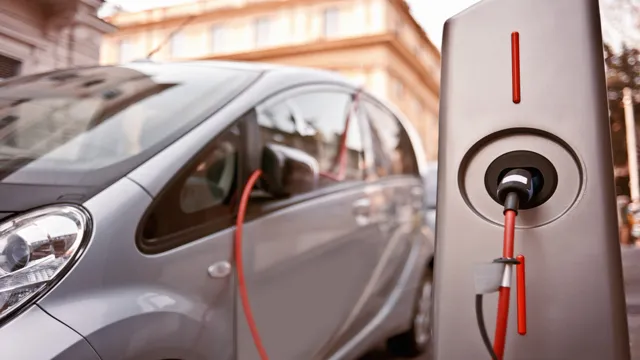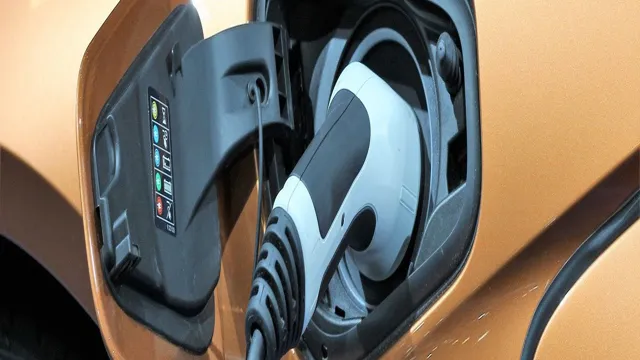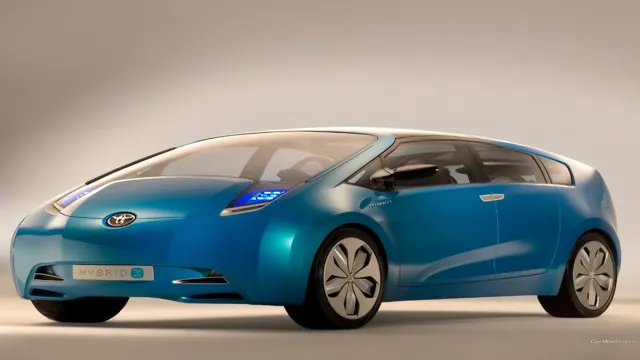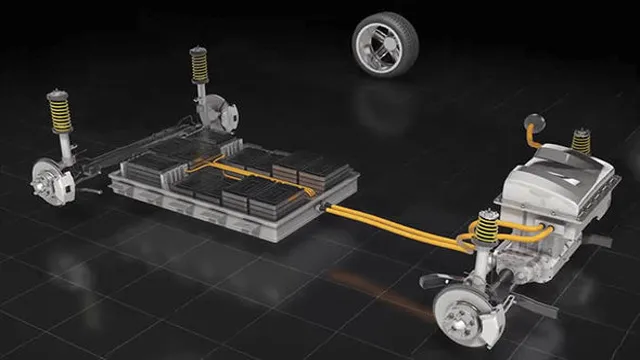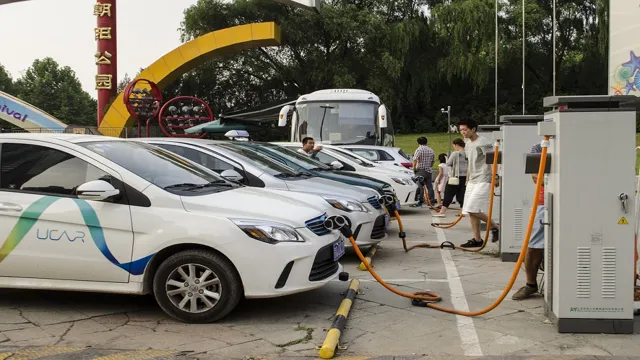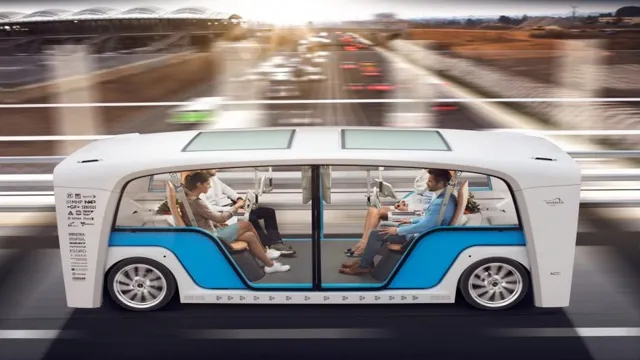Revolutionizing the Roads: The Latest Breakthroughs in Electric Car Technology
From futuristic concept cars to fully electric vehicles on our roads, modern technology has brought unprecedented changes to the automotive industry in recent years. As we move away from traditional combustion engines, electric car technology improvements continue to dominate headlines, with new advancements and innovations being explored every day. The demand for eco-friendly and cost-efficient vehicles has been driving the evolution of electric cars, with much of the hype around this technology lying on the benefits it offers.
But what are these improvements, and why have they become so crucial to the future of the automotive industry? Let’s delve into the world of electric car technology together and find out what’s driving the revolution.
Battery Performance
Electric car technology has seen significant improvements in battery performance in recent years. With advancements in battery technology, electric vehicles have been able to achieve longer driving ranges, faster charging times, and improved overall efficiency. Lithium-ion batteries have played a vital role in these improvements, as they offer higher energy density and longer lifespan compared to traditional lead-acid batteries.
Additionally, manufacturers have employed various techniques to optimize battery performance, such as innovative thermal management systems and regenerative braking. As a result, electric cars are becoming a more practical and appealing option for consumers, offering a sustainable and efficient mode of transportation. These improvements in electric car technology are undoubtedly shaping the future of the automotive industry, paving the way for a more eco-friendly and sustainable future.
Advancements in Lithium-Ion Technology
Lithium-ion technology has come a long way when it comes to battery performance. The advancements in this technology have led to batteries that are smaller, lighter, and more powerful than ever before. This means that we can use them in a wider range of devices for longer periods of time.
For example, smartphones can now last an entire day on a single charge, thanks to the lithium-ion batteries that power them. Even electric vehicles are being equipped with lithium-ion batteries that can go hundreds of miles on a single charge. But it’s not just the capacity and power of these batteries that have improved.
The safety of lithium-ion batteries has also been a major focus of development, with advanced control systems that can monitor the battery’s temperature, charge, and discharge rates to prevent potential explosions. Overall, the advancements in lithium-ion technology are making our lives more convenient and environmentally friendly, as we continue to rely on more and more battery-powered devices in our day-to-day lives.
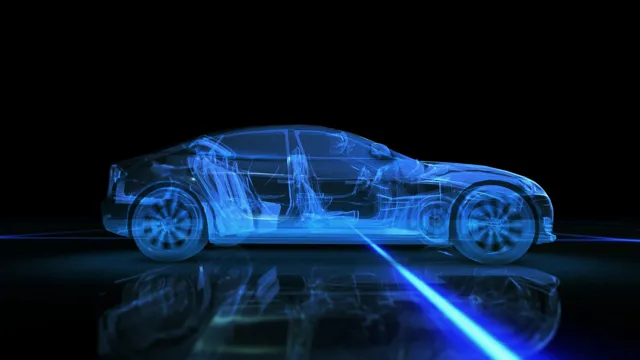
Solid-State Batteries: The Future of Electric Car Batteries
When it comes to electric vehicles, the performance of batteries is a crucial factor. Solid-state batteries are poised to revolutionize the market by offering better battery performance. Unlike traditional lithium-ion batteries, solid-state batteries use solid-state electrolytes instead of the liquid or gel-like electrolytes used in current batteries.
This gives them several advantages, such as increased energy density, faster charging times, and longer lifespan. With better battery performance, electric vehicles will be able to travel longer distances on a single charge, reducing the need for frequent charging. Additionally, solid-state batteries are also safer and less prone to fires, addressing one of the biggest concerns with electric vehicles.
As the market for electric vehicles continues to grow, solid-state batteries hold the key to unlocking their full potential and making them a mainstream mode of transportation.
Charging Infrastructure
As electric car technology continues to progress, charging infrastructure is becoming a key area of focus. With many drivers requiring long-range journeys, it’s important to ensure that charging points are readily available and efficient. Fortunately, there have been significant improvements in charging technology over the years.
One of the most promising developments is the use of high-power chargers, which can slash charging times compared to traditional chargers. This not only reduces inconvenience for drivers but can also help to alleviate congested charging points. Additionally, some manufacturers are now offering vehicles with innovative charging solutions, such as bi-directional charging.
This allows the car to act as a power source, feeding energy back into the grid during peak times. As electric cars become increasingly popular, continued improvements in charging infrastructure will undoubtedly be necessary to keep pace with demand. But with so many exciting developments on the horizon, electric cars are looking to have a bright future ahead.
Rapid Deployment of Fast-Charging Stations Across the Globe
As electric vehicles become increasingly popular, the need for fast-charging infrastructure has become more pressing. Fortunately, companies across the globe are rapidly deploying fast-charging stations for EVs. These charging stations use high-powered charging technology that can fill up your EV’s battery in a matter of minutes instead of hours.
The awesome part is that charging station networks are popping up in more and more locations, making it easier for EV drivers to find charging stations and keep their vehicles powered up. With this rapid deployment of fast-charging infrastructure, the range anxiety that plagued early EV adopters will become a thing of the past. So, the next time you’re thinking of purchasing an electric vehicle, rest assured that the charging infrastructure is there to support you.
Wireless Charging Technology for Electric Cars
Wireless charging technology for electric cars is becoming increasingly popular as more and more people switch to electric vehicles. One of the most significant challenges of electric cars is the charging infrastructure, which requires a network of charging stations to be available for drivers. Wireless charging technology could help to alleviate this problem by enabling cars to charge without plugging in, thus reducing congestion at charging stations.
The technology works by using a magnetic field to transfer energy between the charging pad on the ground and the car’s battery. The process is efficient and convenient, as drivers only need to park their car over the charging pad to begin charging. Although the upfront costs of installing wireless charging infrastructure can be high, it could prove to be a worthwhile investment in the long run.
With the potential to provide a more seamless and convenient charging experience for electric vehicle owners, wireless charging technology could play a crucial role in the continued growth and development of the electric vehicle industry.
Solar Panels as a Charging Option for Electric Vehicles
When it comes to charging electric vehicles, there are a variety of options available, but solar panels are becoming increasingly popular. This is because they offer a renewable and sustainable source of energy that can be used to charge EVs without relying on the traditional energy grid. The process involves installing solar panels on the roof of a home or commercial building, and then using the energy generated by those panels to charge the EV.
This not only reduces a driver’s environmental impact, but also their energy costs in the long-run. While it may require an initial investment to install solar panels and the necessary charging infrastructure, the potential savings over time make it a worthwhile consideration. Plus, the feeling of driving a car that’s powered by the sun is pretty cool too!
Power Management Systems
Electric car technology improvements have led to the development of power management systems, which play a significant role in ensuring efficiency and range of electric vehicles. These systems comprise various components, such as sensors, controllers, and battery management systems, working together to regulate the flow of power from the battery to the motor. With advances in electric car technology, power management systems have become more sophisticated, allowing for greater control over energy usage and more efficient distribution of power.
For instance, regenerative braking, which converts kinetic energy into electrical energy, is made possible through these systems. This technology helps to recharge the battery while the car is in motion and reduces the overall energy consumption. As electric cars become more popular and accessible, power management systems will become increasingly important in ensuring a sustainable and efficient means of transportation.
Regenerative Braking to Recapture Energy and Increase Efficiency
Regenerative braking is a game-changing technology that has transformed the way we think about energy efficiency in modern vehicles. Essentially, it is a method of converting kinetic energy into electrical energy whenever a vehicle decelerates or comes to a stop. This energy can then be stored in a battery or capacitor and used later to power the vehicle’s accessories or even assist with acceleration.
Power management systems play a critical role in ensuring that this process is optimized for maximum efficiency. By carefully monitoring and controlling the flow of energy between the various components of the vehicle, these systems help to minimize waste and ensure that every last drop of energy is put to good use. Overall, regenerative braking is a powerful tool in the quest for greater energy efficiency, and its continued development is sure to play a big role in shaping the future of transportation.
Improved Motor Efficiency and Power Output
Power management systems can significantly improve the efficiency and power output of electric motors. By optimizing the power supply, a power management system can reduce the amount of energy wasted as heat, thereby increasing the overall efficiency of the motor. Additionally, power management systems can control the speed and torque of the motor, allowing it to operate at peak efficiency under any load or condition.
This not only improves the performance of the motor but also extends its lifespan. In fact, a well-designed power management system can improve the power output of an electric motor by up to 20%. This increased efficiency and performance can have a significant impact on both industrial and consumer applications, reducing energy consumption and improving productivity.
So, if you want to get the most out of your electric motor, consider investing in a high-quality power management system to optimize its performance and efficiency.
Autonomous Driving Capabilities
Electric car technology has advanced over the years, particularly with the rise of autonomous driving capabilities. This technology is allowing vehicles to navigate highways and city streets on their own, making driving safer and easier for people. Electric cars with autonomous driving technology are becoming more accessible, and this is a promising development in the industry.
This new technology also brings with it improvements in the driver experience, such as the ability to multitask while driving or simply sit back and relax while the car drives itself. The keyword “electric car technology improvements” is particularly relevant in this context, as this innovation continues to evolve and offer exciting opportunities for the future. As more people seek to reduce their carbon footprint and shift towards electric cars, it’s exciting to see how technology is advancing to make this shift easier and more accessible.
Conclusion
It’s clear that electric car technology has come a long way since its inception. With continued improvements in battery technology, charging infrastructure, and increased driving range, electric cars are poised to become a mainstream mode of transportation. So, it’s time to ditch the old gas guzzlers and join the electric revolution.
Because when it comes to saving the planet and looking cool, electricity is the new black.”
FAQs
What improvements have been made in electric car technology over the years?
Electric car technology has improved in areas such as battery range, charging speed, and overall performance. Additionally, advancements have been made in autonomous driving and connected car features.
How do electric cars compare to gas-powered cars in terms of efficiency and environmental impact?
Electric cars are generally more fuel-efficient and have lower emissions compared to gas-powered cars. They also have the potential to become even more eco-friendly as the electricity grid becomes increasingly powered by renewable energy sources.
Are there any downsides to owning an electric car compared to a gasoline-powered car?
While electric cars have their advantages, they may not be suitable for all drivers. They may have a shorter range and longer charging time compared to gas-powered cars, and there may be limited access to charging stations in some areas.
How is the electric car industry responding to the demand for more affordable options?
Some companies are investing in research to find cheaper ways to produce electric cars while still maintaining quality and performance. Others are offering incentives and rebates for electric car purchases to make them more accessible to a wider range of consumers.

